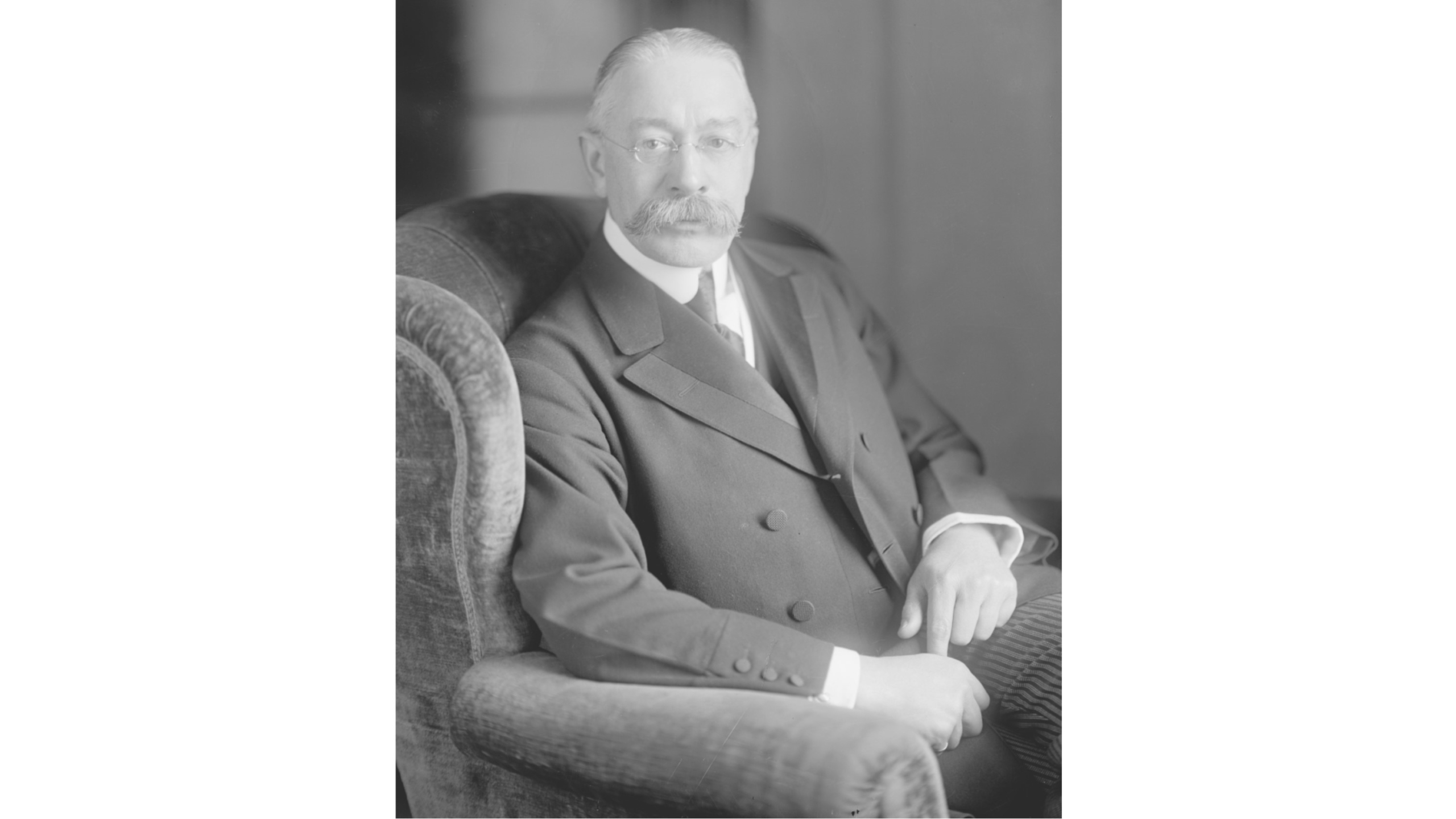This blog article was written by John Oller, an author and retired New York lawyer whose latest book is White Shoe: How a New Breed of Wall Street Lawyers Changed Big Business—and the American Century (Dutton, March 2019), from which his upcoming Judicial Notice Issue 15 article, “George Wickersham: ‘The Scourge of Wall Street,’” is adapted. He may be found at www.johnollernyc.com. Below is a preview of the article.
Judicial Notice is a members-exclusive publication! Make sure to join or renew your membership to receive your copy.
Join or Renew Your Membership
Introduction
In New York legal circles today, the name Wickersham is most closely associated with the law firm of Cadwalader, Wickersham & Taft, the oldest in New York City. The actual man behind the name, George Wickersham, is less well known to current generations. Yet from roughly 1900 to his death in 1936, George Wickersham was one of the most renowned and influential lawyers of his time. He began his career creating and defending large corporations, then switched sides, as US attorney general under William Howard Taft from 1909 to 1913, to become known as “the scourge of Wall Street” for his aggressive prosecution of antitrust cases.
Early Life and Career
Born in Pittsburgh in 1858, Wickersham started out at Lehigh University in Pennsylvania intending to become civil engineer, but a literature professor who spotted in Wickersham a taste for letters persuaded him to “give up the study of calculus for that of Blackstone.” He obtained his law degree from the University of Pennsylvania in 1880 and moved to New York City in 1882 to take a clerkship with the firm of Chamberlain, Carter & Hornblower. It was a progenitor of the “white shoe” firms and lawyers who would dominate the legal world for many decades of the twentieth century.
Attorney General
Wickersham developed a reputation as one of the most talented lawyers in the city and, after the election of President Taft in 1908, was offered the job of attorney general. During Taft’s presidency, Wickersham instituted twice the number of antitrust actions, in half the time, as the administration of Theodore Roosevelt (“Teddy the Trust Buster”) had brought during its tenure. “Wickersham has out-radicaled the radicals,” observed one businessman, who noted “great disgust” on Wall Street with Wickersham’s torrent of antitrust suits.
Wickersham’s two most important antitrust cases were suits to break up John D. Rockefeller’s Standard Oil of New Jersey, and to dissolve the American Tobacco Company, which controlled 95 percent of cigarette manufacturing in the United States. He won both cases.
Later Life
After his return to private life and retirement from active practice, George Wickersham was constantly in demand as an after-dinner speaker and toastmaster. He was the most erudite, and best liked, of his white shoe brethren.
The crowning point of Wickersham’s career came in 1929 when President Herbert Hoover appointed him to chair what became popularly known as the Wickersham Commission. The expert panel, the first presidential commission of its kind, was formed to investigate the rise of organized crime during the Roaring Twenties. Among its charges was to determine whether Prohibition, which had spawned bootleggers, speakeasies, and violent gangsters, should be repealed.
After two years of study, the Wickersham Commission released a multivolume report, which, at more than a million words, was so voluminous that Will Rogers joked that people were using it to feed goats in Texas. Besides recommending numerous improvements in policing, the report advocated more aggressive enforcement of the anti-alcohol laws. The report also provided ammunition to the many critics of Prohibition, and two years later the “noble experiment” came to an end.
George W. Wickersham died in January 1936, at age seventy-seven, little more than two years after the repeal of Prohibition. He was riding in a taxicab in midtown Manhattan when he collapsed of a fatal heart attack. He was on his way to lunch at the Century Club, whose members would greatly miss their convivial and learned friend.

